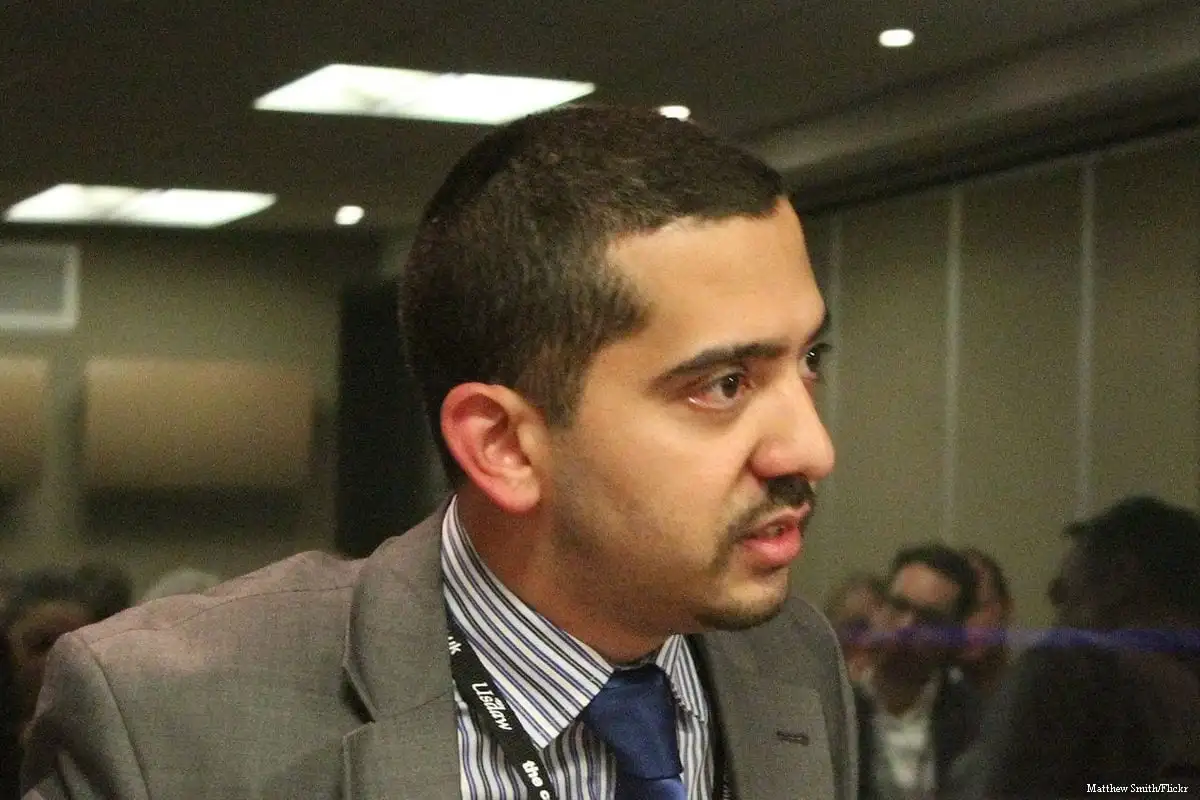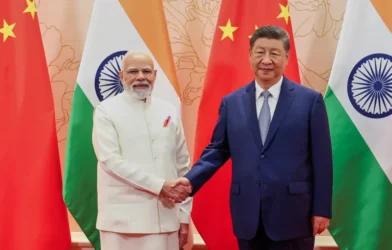Subtotal $0.00
The thrill of uncovering hidden secrets attracts people, especially when they relate to established truths. Therefore, Mehdi Hassan makes sure to show his audience the hidden side of the picture, or emphasize the absence of this side if it doesn't exist.
In his "Blowback" program on The Intercept, Mehdi Hasan wanted to show us what we should really know about Hamas, which seems to contradict what we already know about the Palestinian Islamic Resistance Movement. According to the journalist, although Israel has fought three wars against Hamas, the Zionist state actually helped "create" the movement. He came to this conclusion by essentially adopting the Israeli narrative, and there was no representation of the Hamas voice in his program; neutrality was completely absent.
Real Palestine vs. Virtual Palestine
Mahdi Hassan assumes that Palestine is a secular nationalist country, not a religious or Islamic one. He emphasizes that the Palestinian national movement was not inspired or led by Islamic principles, but by secular nationalism. The first armed resistance (fedayeen) was founded in 1919 by a group of Muslim scholars, including Sheikh Hassan Abu al-Saud, Sheikh Muhammad Yusuf al-Alami, and Sheikh Muhammad Amin al-Husseini. In the 1930s, another resistance movement known as "jihadism" emerged, founded by Sheikh Izz al-Din al-Qassam. The Palestinian national movement in general was led by another prominent cleric, the Grand Mufti of Palestine, Sheikh Muhammad Amin al-Husseini. Even the first head of the Palestine Liberation Organization (PLO), Ahmad al-Shaqiri, was the son of Sheikh Asad al-Shaqiri, Mufti of the Fourth Ottoman Army and member of the Ottoman Parliament.
As for the founders of Fatah, which Mahdi Hassan characterized as secular, many of them were members of the Muslim Brotherhood, such as Khalil al-Wazir (Abu Jihad), who was the head of the group's youth wing in Palestine, as well as Abdel Fattah Hamoud, Salim Zanoun, Muhammad Yusuf al-Najjar, Salah Khalaf, Rafiq al-Natsheh, Fathi al-Balawi, Yusuf Amira and Kamal Adwan. Even Yasser Arafat himself had close ties to the Brotherhood. Indeed, Islam was the main driving force behind the anti-colonial resistance movements in the Muslim world.
The Muslim Brotherhood was originally founded as a reaction to the fall of the Islamic Caliphate, which was seen as a colonialist plot. One of the group's main goals was to resist colonization. Its founder, Sheikh Hassan al-Banna, supported liberation movements in the Muslim world, especially in Palestine.
The Muslim Brotherhood played a prominent role in supporting the Palestinian national movement, with many prominent figures in Palestinian society joining the group and establishing branches. It is believed that the first Palestinian branch of the Brotherhood was founded in 1937. The Islamic Movement had branches in all major Palestinian cities, including Jerusalem, Haifa, Nablus and Gaza. Most Palestinian leaders either joined the Jamaat or were well connected to it, such as Sheikh Amin al-Husseini. Jamaat members were active in social and political work, especially in confronting the Zionist movement. Their activity included organizing armed groups locally and in neighboring Arab countries such as Egypt, Syria, Iraq and Jordan.
Not surprisingly, then, most Palestinian resistance groups have been Islamist, created with the support or participation of Muslim Brotherhood members. Many of the founders of Hamas were among those who refused to leave the Brotherhood and join Fatah when it was founded.
The fierce campaign by Gamal Abdel Nasser and the Egyptian media against the Brotherhood damaged the group's structure and image. Its leaders believed they needed more time to rebuild before embarking on a resistance movement.
However, the Brotherhood did not stop working within Palestinian society. It was one of the strongest political and social movements, and was active in universities, community organizations, trade unions, and at the grassroots level. After a severe blow to the PLO and Fatah factions at the hands of the Israeli occupation in Lebanon in 1982, which threatened the future of the Palestinian national movement, the mood within the Brotherhood began to change.
In 1983, Sheikh Ahmed Yassin, described by Mahdi Hassan as "a blind and crippled Palestinian cleric," along with other Brotherhood leaders, decided to build an arsenal and were arrested in 1984 by the Israeli occupation forces. Sheikh Yassin was a prominent public figure and well-known preacher in Gaza, and was released in a prisoner swap deal in 1985.
Over time, more and more members of the group became convinced of the need to launch a comprehensive resistance movement, but they were waiting for the right moment, which came in late 1987 when an Israeli truck driver ran over three Palestinians, sparking the First Intifada. Shortly after, in mid-December 1987, the first manifesto of the Islamic Resistance Movement, later known as Hamas, was issued.
Did Israel Help Hamas?
It is likely that Israel has tried to manipulate the Palestinian landscape by fomenting factional disputes, but it has largely failed. There is no document or testimony, even from those used by Mehdi Hassan in his program, that explicitly shows that Hamas received direct support from Israel. Hassan cites Yasser Arafat, who was a rival of Hamas, to prove his point, but how seriously can this claim be taken? This is even more true of the Israelis and Americans who have declared open war on Hamas.
Moreover, Mahdi Hassan did not explain to his followers that Israel, as an occupying power in the West Bank and Gaza Strip, was legally responsible - under international law - for providing for the needs of the population, including schools, mosques, and community institutions. Palestinians had to obtain permits from the Israeli military administration for everything from burying their dead to building a university. Therefore, it is practically impossible that Sheikh Yassin could have founded a civil society organization in 1978 and in five years built a massive network to rival Fatah without the prior organizational grounding of the Muslim Brotherhood. It is important to note that owning civil institutions was not exclusive to Hamas; all other factions had similar institutions, including Fatah.
Hamas and ISIS?
Mahdi Hassan came to the shocking conclusion that all Islamist movements are the work of colonialist powers. He claimed that the issue in Palestine is not the Israeli occupation, but rather Hamas, which he sees as an extremist movement not unlike ISIS, and not a liberation movement. In his view, Hamas is nothing but an extremist, anti-Semitic Islamist group that opposes Fatah, which he sees as pragmatic and responsible for the peace process.
But Hamas won the first and last free and fair elections in Palestine in 2006, winning more than 57% of the seats in the Legislative Council, making it the largest Palestinian political movement. Comparing Hamas to ISIS as a "foreign industry" is a severe blow to the Palestinian national movement and the Palestinian people's aspirations for freedom.
Hamas did not emerge in a vacuum; it is the resistance extension of the Muslim Brotherhood in Palestine. As such, its roots are older than Fatah. What Mahdi Hassan's analysis misses is that Hamas was smart enough to avoid direct conflict with other Palestinian factions, even when the PA cooperated with the Israeli occupation to strike the movement in Gaza and the West Bank. Therefore, it can be argued that Mahdi Hassan's conclusions fall within the same dubious efforts to undermine the Palestinian national movement.







